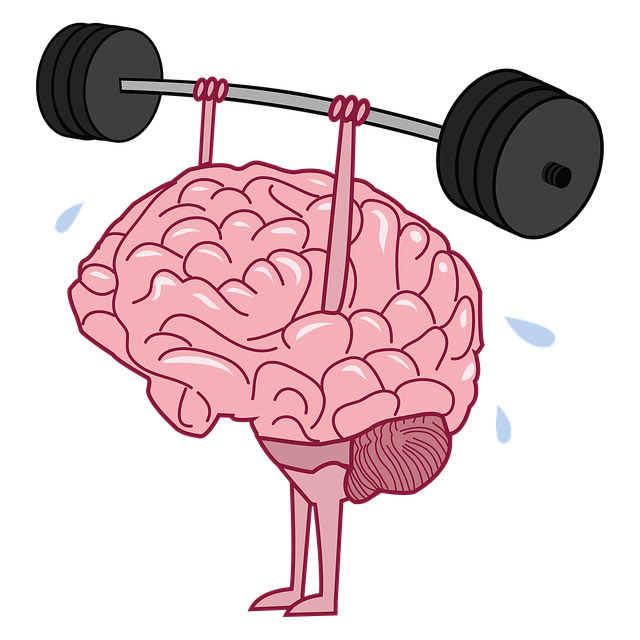Emotional Intelligence (EI) is a vital skill for first responders in Denver, enabling them to manage high-stress situations and maintain mental health. Denver First Responders Therapy plays a crucial role in enhancing EI through tailored therapy sessions, mindfulness practices, and cognitive reframing, reducing burnout and promoting work-life balance. Supportive therapy techniques foster resilience, empathy, and inner strength, while cultural sensitivity ensures diverse communities receive aligned care. Advocacy for comprehensive mental health policies ensures resources meet the unique needs of Denver's first responders, enhancing their overall well-being.
Emotional intelligence (EI) is a game-changer for first responders in Denver, whose daily reality involves navigating high-stress situations. Understanding and cultivating EI can significantly enhance their resilience and effectiveness. This article explores three key strategies tailored to Denver’s emergency services community. We delve into the impact of EI on first responders’ wellbeing, focusing on self-awareness as a foundation for growth. Additionally, we discuss supportive therapy techniques to foster empathy and build a robust emotional support system within this essential profession.
- Understanding Emotional Intelligence and its Impact on First Responders
- Strategies for Enhancing Self-Awareness in Denver's Emergency Services
- Building Resilience and Empathy: Supportive Therapy Techniques for First Responder Wellbeing
Understanding Emotional Intelligence and its Impact on First Responders

Emotional intelligence (EI) is a crucial concept that goes beyond basic awareness and understanding emotions. It involves recognizing, managing, and effectively utilizing one’s own emotions, as well as empathizing with and responding to the emotions of others. For first responders in Denver—police officers, firefighters, and paramedics—developing emotional intelligence can significantly impact their ability to cope with the high-stress, emotionally taxing situations they frequently encounter.
First responders are often on the front lines of critical incidents, dealing with trauma, loss, and life-threatening emergencies. The mental health awareness and confidence boosting inherent in EI can help them navigate these challenges more effectively. By fostering self-care practices and emotional resilience, first responders can enhance their performance, reduce burnout, and maintain a healthy work-life balance. Denver First Responders Therapy plays a vital role in supporting these individuals in cultivating emotional intelligence, ensuring they have the tools needed to thrive in their demanding professions.
Strategies for Enhancing Self-Awareness in Denver's Emergency Services

In Denver’s emergency services sector, fostering emotional intelligence starts with heightened self-awareness. First responders often face high-stress situations, making it crucial to understand their emotions and triggers. Strategies like regular therapy sessions tailored for first responders can significantly enhance self-awareness, helping them recognize and manage stress, anxiety, and potential burnout. By prioritizing mental health awareness, these strategies enable Denver’s first responders to maintain emotional balance amidst challenging circumstances.
Additionally, integrating mindfulness practices into their daily routines can further bolster self-awareness. This could involve simple exercises like deep breathing or more structured approaches such as meditation. Such practices not only reduce stress but also foster a deeper understanding of one’s emotional responses, ultimately contributing to improved depression prevention and overall well-being among Denver’s emergency services personnel.
Building Resilience and Empathy: Supportive Therapy Techniques for First Responder Wellbeing

For Denver first responders, building emotional intelligence involves cultivating resilience and empathy, which are crucial for navigating high-stress situations. Supportive therapy techniques, tailored to address their unique challenges, play a pivotal role in fostering inner strength development. Therapists can incorporate mindfulness exercises and cognitive reframing to help first responders process trauma and develop healthy coping mechanisms.
Cultural sensitivity in mental healthcare practice is essential when supporting diverse first responder communities. Understanding and incorporating cultural perspectives into therapy ensures that each individual receives care that resonates with their background, enhancing the effectiveness of treatment. Moreover, advocating for comprehensive mental health policy analysis and advocacy ensures that resources and services meet the specific needs of Denver’s first responders, promoting their overall wellbeing.
Emotional intelligence is a vital asset for Denver’s first responders, enabling them to navigate challenging situations with resilience and empathy. By understanding and managing their emotions, as well as recognizing and connecting with others’ feelings, first responders can enhance their mental wellbeing and improve the quality of care they provide. The strategies outlined in this article—self-awareness development, building resilience through supportive therapy techniques—are key components in fostering emotional intelligence among emergency services personnel. Investing in these areas is crucial for supporting Denver’s first responders, ensuring their long-term health and effectiveness in stressful roles.














